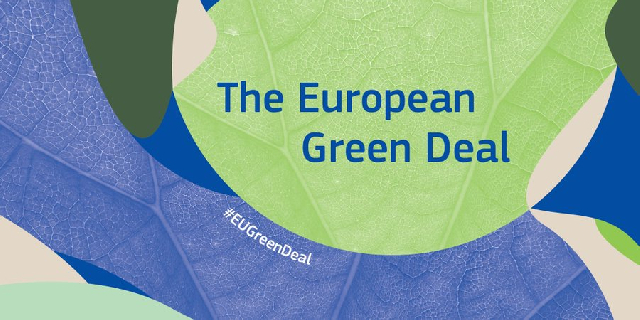The Green Deal
The EU, responsible for about 10% of greenhouse gas emissions, wants to become carbon neutral by 2050

Corina Cristea, 06.03.2020, 13:58
The EU, responsible for about 10% of greenhouse gas emissions, wants to become carbon neutral by 2050. In other words, to reduce carbon dioxide and other toxic elements to the level that they are completely absorbed by the ecosystem naturally. This is by no means a novel idea, it has been on Brussels priority agenda for a few years now, and in December last year Ursula von der Leyen introduced in the community legislature the European Green Deal. The document is a roadmap meant to ensure the sustainability of the European economy, by turning climate and environmental challenges into opportunities in all areas of politics by guaranteeing a transition that is equitable for all and favorable to everyones inclusion. Here is Euro MP Siegfried Muresan:
“By 2050 we want to cease emitting more carbon dioxide than nature can absorb by natural means, such as vegetation. This is the long term sustainable objective: less pollution, cleaner cities, and in this process create more stable, well-paid jobs, in new sectors of the economy, based on research, innovation, digitalization.”
People are the ones that the European Green Deal was built around, the vision for a carbon neutral Europe by 2050, said Ursula von der Leyden. She added that an unprecedented transformation awaits everyone, which will work if it will be equitable and sustainable for all, with support for people and regions that will have to make greater efforts to achieve the changes, leaving no one behind. The president of the EC said that the plan is to mobilize over one thousand billion Euro to unblock a wave of green investment. According to Brussels, the mechanism for an equitable transition is a key instrument based on three main sources of financing, the fund for equitable transition, an InvestEU financing scheme, and a lean instrument in collaboration with the European Investment Bank. All member states, regions and sectors will have to contribute to transition, but the intensity of the challenge will be different. The deal is described as the most ambitious package of measures, according to Romanian Euro MP Carmen Avram:
“The Green Deal wants to change all the policies that have been working in the EU in the last 70 years, because it wants to cut carbon emissions by 50% by 2030, and by 80% to 100% by 2050. Meaning that Europe is supposed to become the first continent with zero emmissions. All this revolution has as its aim limiting global warming to 1.5 degrees Celsius as compared to the pre-industrial period. That is needed because it is scientifically proven that we are fast moving towards the point of no return, making the Earth uninhabitable.”
As pointed out by von der Leyden, the European Green Deal is the new growth strategy that helps reduce emissions and at the same time create jobs. In order to achieve this, the proposal of the EC is for the 2021-2027 financial exercise to earmark a quarter of the Union budget for climate related activities. And because, according to the EC, present policies would allow a mere 60% reduction of greenhouse gases by 2050, more ambitious action is needed. The European Parliament wants for its next climate bill to be more ambitious in terms of the EU emission objective of cutting them by 55% by 2030 as compared to 1990, because the present aim proposed by the EC is at least 50% with an aim of 55%. The EU should adopt these objectives way before the UN climate change conference of November. Also, the MPs want an intermediate target for 2040, in order to ensure that the EU is well on its way to reaching climate neutral status by 2050. In a letter sent to the Commission by several member states calling for speeding up the process, it is stated that discussions between members states on the 2030 target should start in June this year at the latest, which means that the community executive should issue by then its own recommendations. Romania is a part of the Green Deal, and, after Poland and Germany, would be earmarked the most money for a fair transition by 2050.






























